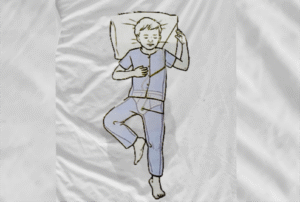
Involuntary discharge of urine while sleeping (urinary incontinence) is called bed wetting. Bed wetting is medically called “nocturnal uncontrolled bed wetting”. There can be two types of bed wetting- Primary enuresis – wetting the bed since childhood. Secondary enuresis – this disease develops after spending at least six months continuously without wetting the bed at night. Bed wetting since childhood is called primary bed wetting. Primary bed wetting is due to the late maturation of the nervous system. It is the inability to recognize the messages sent by the bladder to the sleeping brain. The treatment for primary bed wetting is- take the child to urinate at short intervals at night.
Symptoms – Most patients who suffer from bedwetting disorder experience this only do it at night; have no other symptoms besides wetting the bed at night. Other symptoms may point to psychological causes or problems with the nervous system or kidneys and alert the family or health care provider that the symptom may be more than regular bedwetting – daytime wetting; frequent excessive urination or burning when urinating; straining to urinate, dribbling of urine (after urinating) or other unusual symptoms; cloudy or pink urine or blood stains on underpants or pajamas; soiling; being unable to control bowel movements (called fecal incontinence or encopresis); constipation.
Causes: No one knows for sure what causes bedwetting, but a variety of factors may play a role: a small bladder; inability to recognize a full bladder; hormonal imbalances; stress; urinary tract infections; chronic (long-term) constipation; structural problems in the urinary tract or nervous system.
Treatment Protocol
No medicine is given to children below 10 years of age. It is just necessary for them to be woken up in the middle of the night and asked to urinate in the bathroom. If the age is more than 10 years and the problem is not getting solved despite the above.
Tab- Amitriptylin 25 mg.
Tab- Cystran 2.5 mg – BD at bedtime 30 days.
